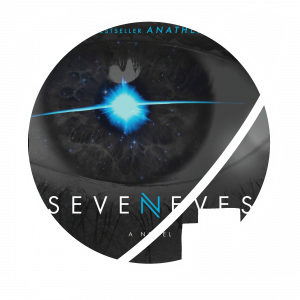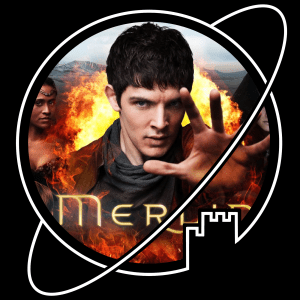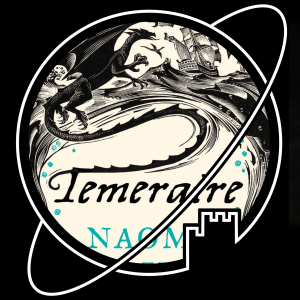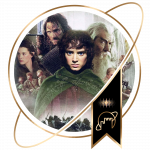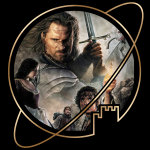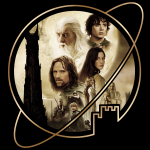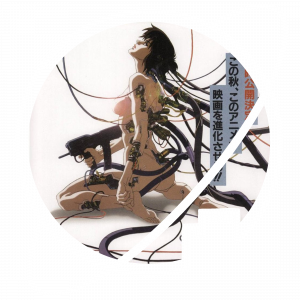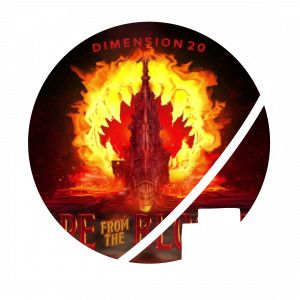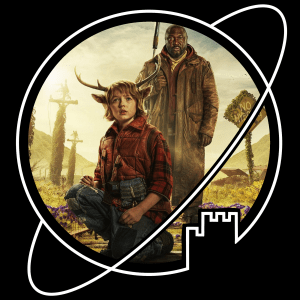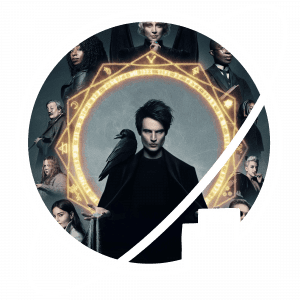Welcome to the Escape Velocity Collection!
We are an opinionated group of friends reviewing all sorts of fantasy and science fiction media. Don’t forget to get to know the curators and visit our curated Collection, where we discuss the stories that never cease to transport us to another world.
Will you escape with us?
LATEST POSTS:
- Book written by Neal Stephenson
- Published 27 October 2021
- Standalone
Alongside representatives from low-lying places all around the world, the Queen of the Netherlands is invited to a secret climate conference where an extravagant Texas oil millionaire reveals his plans to save the earth from climate change and rising sea-levels through a giant geo engineering project with a global impact and momentous geopolitical consequences.
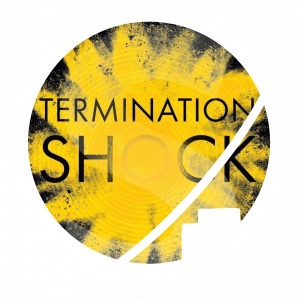

First of all, let me say that I think this book has a great premise: it explores the geopolitical implications of global scale geoengineering to counteract climate change only a single generation into our future. That said, while it contains a number of thought-provoking ideas, I think it is let down by its execution somewhat.
This book is remarkable in that it’s middle section is its best. It took me a good eight hours of listening to character introduction and set up, about a third into the book, before the plot started progressing anywhere. While some of that introductory listening was enjoyable, the majority felt entirely superfluous and should probably have been scrapped. Then when the plot gets moving, it progressively moves from plausible to improbable to borderline unbelievable, until by the climax, I was raising eyebrows every other line. I’m not sure how I would have liked the book to end, but this wasn’t it.
The book’s pace is dragged down by Stephenson’s need to describe pretty much everything in detail, whether relevant or not – whether it is character background, the way the big climate device works, a hitchhiking trip to the Himalayas, or the way a certain character stores the spare parts for his drones. It is not that these are all irrelevant, and some of these explanations are interesting vignettes of a world that could be. But Stephenson does not seem to have mastered the art of conveying this kind of information or character depth without breaking the pace of the story.
In addition, the book oozes a need to be relevant: be it literal internet meme references or mentions of Uyghur repression, deepfakes, the storming of the Capitol, or even the Khashoggi killing, the book is constantly showing off how well the writer followed the news the past two years – in ways that seem to make no sense to characters supposedly living some three decades into the future.
As a Dutch person, there is some extra fun in assessing how well Stephenson read up on his main character, who happens to be the queen of the Netherlands. At times he is remarkably well researched, at others he is hilariously wrong (Allow me to digress here. The queen lives in Huis ten Bosch, which Stephenson describes as ‘’surrounded by ancient forest”. It’s in the middle of the Hague. It’s a park. He’ clearly not been there, but you wonder how he made the mistake. I googled it, and the first hit describes the park as having ‘’eeuwenoude bomen” (ancient, literally, ‘centuries-old’ trees. Probably two centuries at most, and no-one in their right mind in the Netherlands would describe that as ‘ancient forest’, but you just know Stephenson fell for that). What is more, he has his Dutch characters do the very American thing of constantly assessing people, or having them be assessed, by their race – not saying that the Netherlands is never racist, but I feel people with quarter-Indonesian descent are so common here as to be completely unremarkable.
At the end of the day, there are some entertaining scenes and conversation starters in this book, and as a Dutch reader there might be a few more moments of merriment than for readers from elsewhere. But overall I wasn’t particularly impressed with Termination Shock. Especially given its length and how much of a slog the first third of the book was, I would recommend you find something else to read.
Tagged:
Hello fellow escapists, and welcome to a new update post!
Each month, one of our curators looks back at what they’ve been up to over the past weeks and what we can (hopefully) expect from them in the not-too-distant future.
This month, I (Jop) will take you through my experiences in the speculative genre over the past month. Curious what I’ve been reading, watching and playing?
Read on!
Past month
This month, there were quite some words of praise on science fiction media I’ve not yet experienced myself. I’ll make sure to add those to my ‘consume list’. However, I personally found the curator question post about the curators’ preferences for fantasy or science fiction the most interesting. It’s a nice insight into why people are drawn (or not) to a certain genre.
I’ve to come to the defence of my genre, though. Key, if you truly believe fantasy can’t lead to personal reflection and mindfulness, there’s a whole part of your soul you’ve yet to discover!
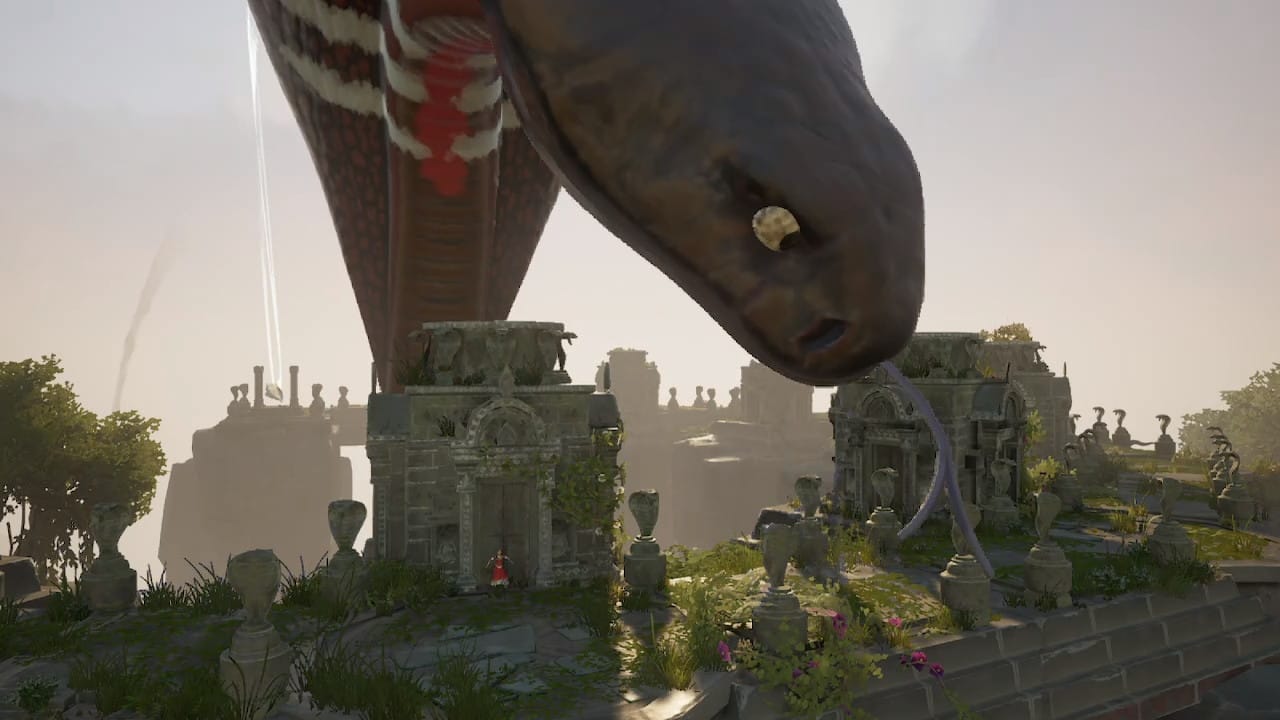
As for my wanderings in February, I finally finished Raji: An Ancient Epic! A beautiful indie game that draws from the bountiful Hindu traditions and South(east) Asian cultures. The young girl Raji is chosen by the goddess Durga as her champion, on a quest to not only save her brother’s life, but also the fate of the world.
Expect a review from me soon!
Furthermore, a personal achievement: I broke the record in Life is Strange: True Colors‘ Arkanoid minigame! I won’t lie, I was quite pleased with myself. Defeating DOH’s alien forces was no easy feat, you know…
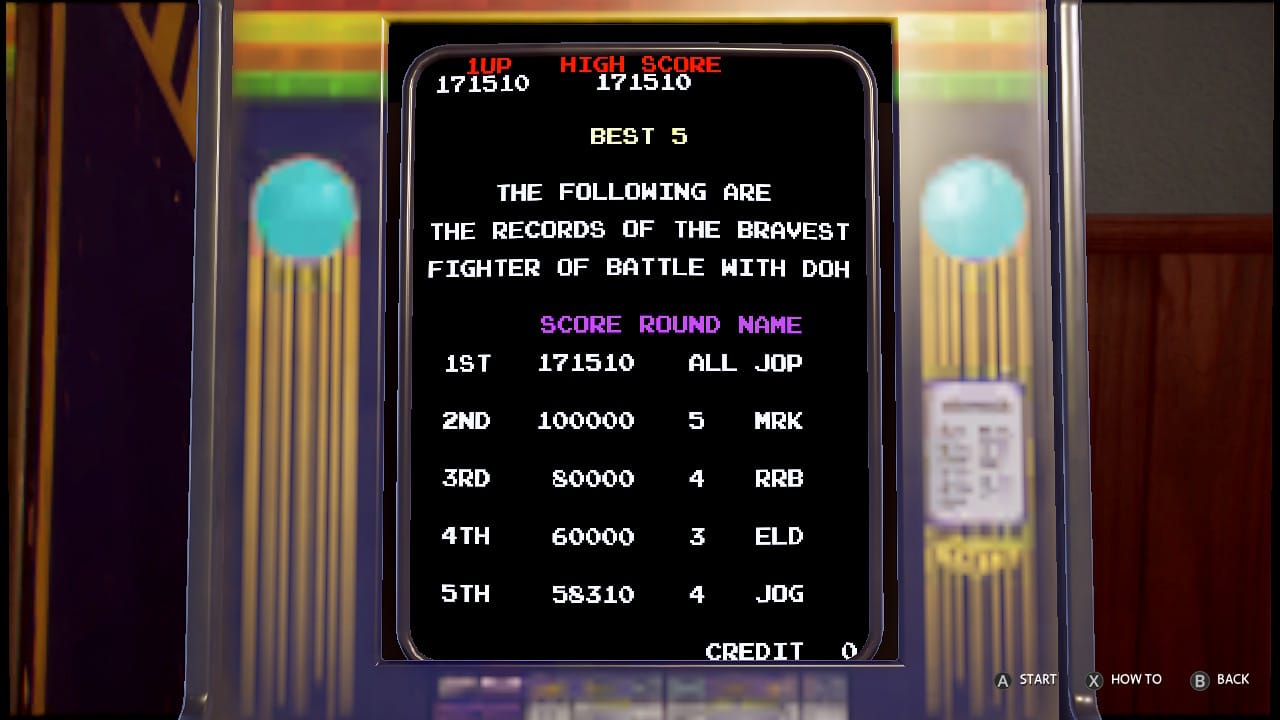
Upcoming

In March, I hope to finish reading The Fifth Season by N.K. Jemisin. I’ve had little peace of mind to read in the past few months, but this book has been very successful in luring me back.
This weekend, we’ll also have a session zero for an upcoming Pathfinder campaign. I’m very excited to meet all the new characters everone has come up with! Also, I won’t mind playing the spiritualist I’ve created some time ago.
Towards the end of this month, I expect to have some of my time lightened by the then newly released Kirby and the Forgotten Land. Will I be playing it? Maybe. Will Jasmijn be obsessively playing this pink and round hero while screaming at the television screen? Well, that’s a given…
That’s it for this month folks!
Have you played Raji: An Ancient Epic or Life is Strange: True Colors? Do you think my Arkanoid highscore is impressive (nevermind, you don’t have to answer that)? Do you have anything to recommend I read/watch/play the coming months?
Let me know on our socials!
- TV-show created by Rafe Judkins for Amazon Prime
- Based on The Wheel of Time by Robert Jordan
- Released in 2021
- Starring Rosamund Pike, Daniel Henney, Zoë Robins, Marcus Rutherford, Josha Stradowski, Madeleine Madden and others
- 1 season
The lives of five young people are changed forever when a powerful woman called Moraine arrives at their village. She tells them that one of them is the reincarnation of ‘the Dragon’, a powerful sourcerer who will play a vital role in the fight against the Dark One. As they travel with Moraine to consult the head of her order at the White Tower, their loyalty to each other is put to the test.
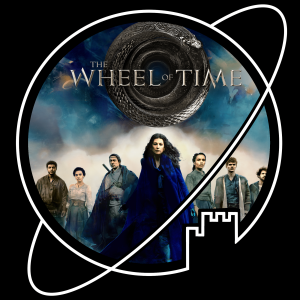

This review relates to season 1
I should start by saying that I have not read any of the books of the Wheel of Time series, so I have no idea how the TV-show compares to the books. I was really looking forward to diving into a good fantasy series, but I’m afraid I did not enjoy it very much.
Almost all of the main characters are either extremely annoying, or just rather boring. Rand is definitely the worst of them: he acts like a spoilt five-year old throughout the entire season. His girlfriend Egwene is less annoying but not very interesting as a character, and I was not very convinced by the attraction between them. Nynaeve’s insistence on being both uncooperative and unpleasant makes her seem like a sulky toddler, and while Perrin suffers a major trauma early on this hardly gets addressed in later episodes. Mat is also quite an ass, but in his case at least it seems to be a deliberate choice.
The only slightly redeemable characters are Moraine and al’Lan, although the last of those two hardly even says a word (some of the other characters should take note). Combined with some pretty mediocre worldbuilding and a quite predictable plot, there was simply not enough there to make the show even remotely interesting.
As I said, I haven’t read the books so I don’t know if I would have felt the same way about them, or if these issues were caused by the adaption. At the moment I mostly feel that with the kind of budget Amazon undoubtedly spent on this show, there could have been so many more original and interesting stories to tell. I personally will not continue with the second season, unless I hear some incredible reviews from people who’s opinion I fully trust.
Tagged:
- Book written by Naomi Novik
- Published 10 July 2018
- Standalone
Miryem’s father is a moneylender. He is renowned for his kindness, and eventually the family falls into poverty as the townspeople take advantage of his leniency and stop paying back their loans. Eventually, Miryem hardens her heart and starts collecting the debts herself. She becomes known as someone who can spin silver into gold, and attracts the attention of the king of the Staryk, a mythical icy people who terrorise humans. Meanwhile a plain noblewoman tricks the cold-hearted tsar into marrying her, and discovers exactly what evil force has chilled his heart.
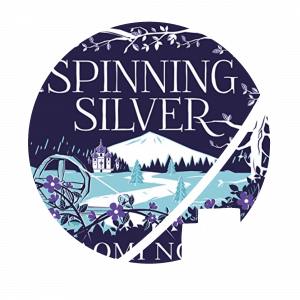

Spinning Silver is a stunning fairy tale. Novik manages to capture a certain atmosphere incredibly well. Honestly, it’s hard to describe quite how this book made me feel.
It’s definitely not a short book, but it was well worth the time I spent on it. The ~vibe~ of this book is fantastic. I’d highly recommend reading this in winter, especially if you live in a place where it snows.
One of my favourite things about Spinning Silver were the characters. Everyone seems to have depth, and you really grow to like some of them, even if you strongly disliked them at the start. Novik takes her time with these character developments, and the story never feels rushed.
This book is a retelling of the fairy tale of Rumpelstiltskin. I feel like the genre of fairy tale retellings is a very difficult one to work in, as it’s very easy to come up with “twists” to fairy tales, which means that it’s hard to come up with something original that feels like it stands alone and isn’t just something at the level of Disney’s live action remakes. I honestly really dislike a lot of this genre because I’m not a huge fan of stories that are made “edgy” for the sake of it. Spinning Silver doesn’t fall in this trap. To be honest, I’m not sure I would have recognised it as being inspired by Rumpelstiltskin (because I am dense, but also because it’s not a one to one retelling). The story has its dark moments, but they serve a purpose in the book.
Spinning Silver is what a book should be. You know how sometimes you read a book, and in that book a character is reading a book about far off places and magic and magical creatures? And then you wish you could find a book just like that because it sounds so whimsical and dream-like? Yeah. That’s kind of what Spinning Silver is like.

It’s rare to find books in which characters and plot are skilfully balanced, even more so when the story is told from multiple perspectives. It’s quite extraordinary to find such qualities in a book that also comes with a strong atmosphere and well-developed themes. Imagine my pure delight when I discovered Naomi had craftily managed this with Spinning Silver!
Truly, there’s little to criticize in this book. It has a well built cast of characters whose storylines are cleverly interwoven. Although I can’t say the characters deeply touched me on an emotional level, their struggles and sentiments were very convincing. Furthermore, the female protagonists get to be strong in an authentic way, without the author succumbing to cheap tomboy pitfalls. Especially Miryem hit the mark for me, and I was impressed with the subtle and sensitive way Naomi handled her Jewish heritage.
Another one of Spinning Silver‘s strong points is its mystical atmosphere, strongly defined by elements of (East-)European fairy tales and cultures. The story quickly invoked a sense of wonder in me, not very unsimilar to the way a younger me felt when listening to fairy tales in my youth. If that’s not magical, what is?

I enjoyed Spinning Silver. I am not lyrical about it, but I know some other curators are and I can totally see why. Spinning Silver is awesome at what it tries to do. What it tries to do is just not what I want to read most of the time.
Spinning Silver is a fairytale-esque fantasy novel set in a wintery eastern European medieval setting that is just new enough to entice and just familiar enough to be comfortable. It follows the day to day struggles of three women, each trying to achieve their own goal. Each of our protagonists then gets set on a path towards a confrontation with the magical powers that keep the land shrouded in an unnaturally long winter.
The fairy tale-esque nature of the book means that the worldbuilding is relatively limited and it instead leans heavily on mystery and atmosphere. This, alongside its themes of building confidence, standing up for yourself, and the importance of family, makes it a light read particularly well suited for younger readers.
There is also a subtle red line of antisemitism and the othering of Jews in medieval communities, though it does not have hard edges in this specific book and might actually serve well as a starting point for a conversation about discrimination in modern society.
Personally, I was not blown away. I am not a massive fan of Novik’s writing style in Spinning Silver and Uprooted, which I think is a bit matter-of-fact and – dare I say it? – a bit dull (often, she writes relatively large sections which feel like a chronological observation of a character’s actions more than the telling of a story). I always whish Novik would tell us just a little bit more about the worlds and cities her characters inhabit, which are an original take on the genre and just screaming for more detail. And I wish she would giver her characters just a bit more flavour and individuality. In this book, I felt like two of the three main characters were so similar as to be nearly indistinguishable at times.
That’s a lot of criticism (especially for a book that I enjoyed!), and I understand the criticism is mostly besides the point of the book.
Spinning Silver is about the atmosphere, about coming together to defeat not one but two evils, about spring beating winter, about mystical cabins in the wood and hidden worlds behind a mirror. If that description stirs something inside you, I wholeheartedly recommend you Spinning Silver.
If you, like me, are into fantasy with rough edges, however, this book might not be your favourite read of the year.
Tagged:
- Book written by William Gibson
- Published 1 July 1984
- Part 1 in the Sprawl Trilogy
William Gibson’s debut novel Neuromancer is the work that defined and almost single-handedly established the Cyberpunk genre. It is the story of Henry Case, a washed up hacker that is wasting his life away as a drug addict in the underworld of Japanese Chiba, until he gets picked up by Molly, a mercenary in the service of one Armitage, an ex-special forces agent, who needs Case’s hacking skills for a job unlike any Case ever tried before.
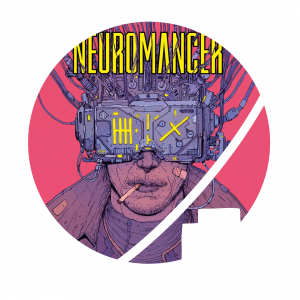

There is one thing you need to know before you start reading this book, and that is that when it was written in 1984, the internet did not (really) exist (its development is complicated, but it was not publicly accessible). Gibson wrote Neuromancer on a typewriter and bought his first computer with the royalties. It is absolutely amazing, therefore, that Gibson predicted a world with a globally linked computer system, advanced artificial intelligence, portable computers, and a virtual reality internet interface that visualised data as buildings and interactable programs as people. In his novel (and the short stories that he wrote in the years before), he coined the terms cyberspace and ‘the matrix’ (as applied to the visual representation of a computer programme). That alone should make you want to pick up this book.
But Gibson did not just have ideas that were way ahead of his time. The novel also has a great balance between building the world, action sequences, and character moments delving into the backgrounds and relationships of the characters. The strongest element, however, is that it oozes atmosphere, from the corpocratic world of Chiba city in the shadows of Tokyo, where drug dealers and hardware fences mix with Yakuza operatives and the occasional corporate clerk looking for something illegal, to the bazaar of Istanbul, where spices are sold over the same counter as software of dubious legality, next to the stuffed skin of a now-extinct horse, to the extravagant satellite Freeside, a Las Vegas in the sky that is home of casinos, brothels, and the villa’s of the super-rich.
Gibson’s prose is evocative, and I find that he has the talent to say a lot in a few lines. Like many top-tier writers of science-fiction, he hints at the past of his world with a few throwaway lines, leaving the reader’s imagination to fill in the gaps. In other places, he takes time to describe the gritty world that his characters inhabit, which came to define the cyberpunk genre. You could argue that Gibson has been more influential for cyberpunk than Tolkien has been for fantasy.
As we’ve now come to expect of a cyberpunk novel, Neuromancer is a book that takes a very negative view of humanity. The characters are eternally in conflict with each other, and each is looking for meaning in a world that seems to offer very little. However, where characters caught in dark thought spirals can feel artificial and unnecessarily edgy at times, I found that Gibson managed to write his characters’ brooding in a way that engaged me emotionally. It also helped, of course, that the world the characters had to live in was such a dark place. And while the novel overall is pretty bleak, there are enough light moments to make it all bearable.
All in all, I think that Neuromancer is rightfully one of the classics of the genre. I really enjoyed reading it, and I keep catching myself thinking back to it. Unless you have a particularly strong dislike for stories with a dark tone, I think that really anyone who hasn’t tried it yet should give this book a shot – after all, it was so wonderfully imaginative that it defined a genre of its own.
See also:
Tagged:
Time to get to know the curators from the Escape Velocity Collection! How? By asking them the questions that really matter! Let’s see what our curators have to say…
This week’s question is:
The new Rings of Power teaser trailer, yay or nay?
Ehm… ‘may’?
I’ll confess, I’m not really excited at the moment. “Why not? You love Lord of the Rings! You should be thrilled there’s more content coming!” Well, that’s a very good point. However, the trailer did not yet invoke the Middle-Earth spirit within me. Sure, it was flashy and mysterious, but it was not really substantial. “Before the king. Before the fellowship. Before the ring.” I already knew all this. I’ve learned nothing new, except for a few faces (Elrond with short hair, why?) and places.
It should be said, however, I’m ultimately still not pessimistic towards the series. People are hating on the diverse casting and the lack of Tolkien-purity or whatever. I don’t mind that (and even applaud it). I’m still curious. I just feel this trailer was not very… telling. It could have been a new Narnia trailer just as well. Hopefully, future trailers will be more substantial.
I desperately want to yay this – I’m living and breathing Peter Jackson’s Lord of the Rings-trilogy every day and I want this to be equally good. So far though… the more I learn about it, the worse it seems to get. Perhaps that’s just because nothing could possibly live up to how great the LotR-trilogy was, and maybe I’ve made that better in my mind than it really ever was.
But ‘Haven’t you ever wondered what else is out there’ is just… such a non-Tolkienesque line. That line seems very much aimed at the audience. Like… Middle-Earth is all about myths and legends and ancient grudges. People in Middle-Earth know what is out there, they know the stories, they revere the past. Tolkien is not about that mystical sense of enchantment of what might lie beyond the next hill, that’s Narnia!
And I think that describes this trailer for me: if I hadn’t know better, I would’ve probably guessed it was for a Narnia series. Even the visual style, I think, is reminiscent of those movies. Basically – it looks and feels like a cleaned up, overly groomed, fairy tale-esque, children’s version of The Lord of the Rings. That’s harsh, maybe. I hope to god I’m wrong.
First thought: I guess?? In the trailer I recognised pretty much nothing at all (except for the big pointy statue guy), so I’m not sure how this is supposed to reel in the fans. However, I’m not one to rain on a parade that hasn’t even started yet, so I’ll give it a fair chance. Considering the amount of money they threw at this, it might actually turn out not too bad. I just really want it to be good, for my friends. But looking at their reactions, I might be a little bit too optimistic. I’ll have to watch it anyway so we’ll see, haha.
Nay. I did not read or see anything before this trailer, but this gives me more reason to doubt than to be hyped. I saw some great landscapes and impressive settings, but also some too-polished CGI that reminded me of the Hobbit trilogy – and that’s not good. But most stuck with me the amount of teenagers in the trailer, all looking like they were about to have angsty romances. Brr, I hope I’m wrong…
That’s it: another soul-searching question answered!
Still curious? Visit each curator’s page to see what they’ve recently been up to!
Check out our reviews of the media recommended in this post here::

Review: Termination Shock – Neal Stephenson
The Queen of the Netherlands is invited to a secret climate conference where an extravagant Texas oil millionaire reveals his plans to save the earth from climate change and rising sea levels.


Review: The Wheel of Time – Amazon Prime Video
The lives of five young people are changed forever when a powerful woman called Moraine arrives at their village. She tells them that one of them is the reincarnation of ‘the Dragon’, a powerful sourcerer who will play a vital role in the fight against the Dark One.

Review: Spinning Silver – Naomi Novik
In a modern take on a classic fairy tale, we follow three young women as they face a cold, bitter winter, and everything that can be found within it.

Review: Neuromancer – William Gibson
Part one of the Sprawl Trilogy – Henry Case, a hacker wasting his life away in the underworld of Japanese Chiba, gets picked up by a mercenary in the service of an ex-special forces agent who needs his hacking skills for a unique job.

Curator Question: The new Rings of Power teaser trailer, yay or nay?
Our curators discuss the new Rings of Power teaser trailer: yay or nay?










